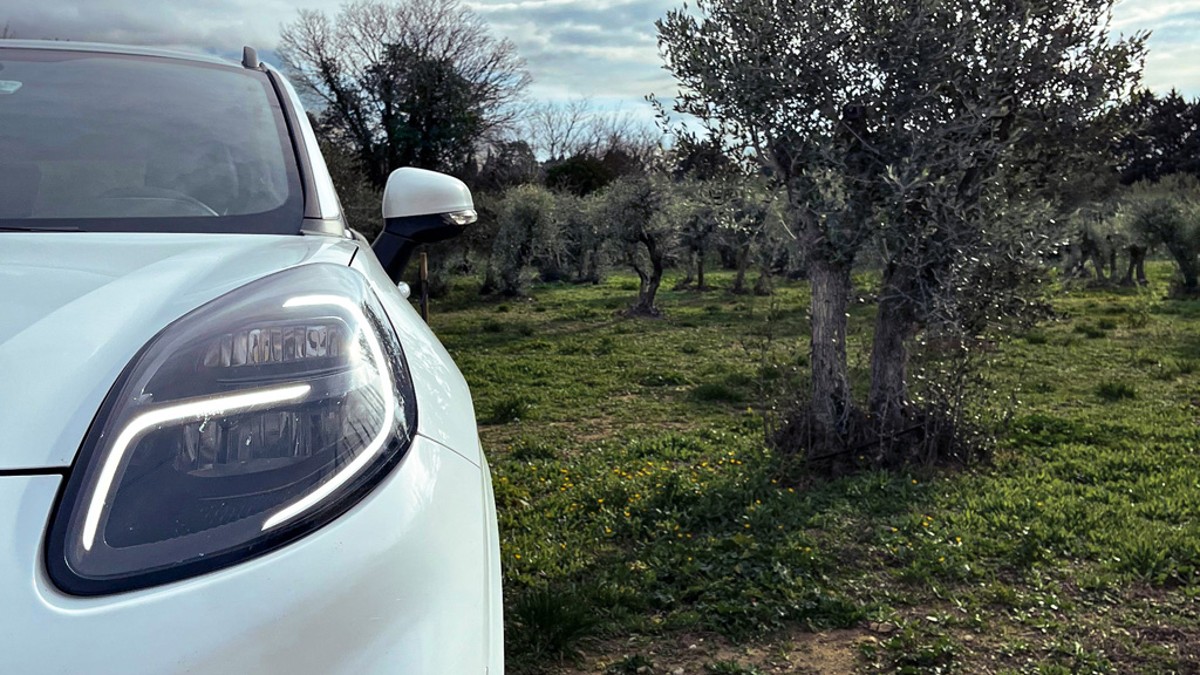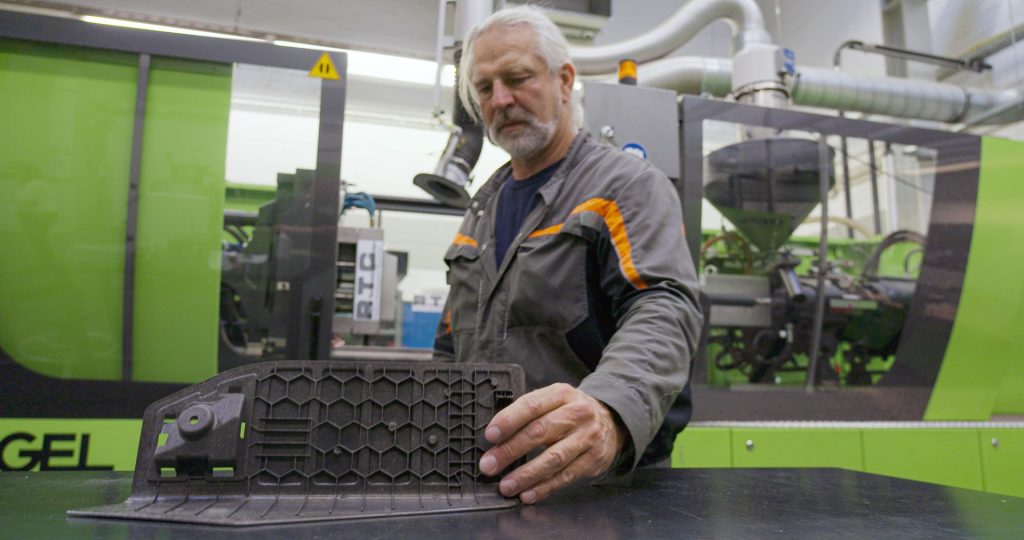
Ford is combining olive branches and twigs with recycled plastic in a pilot to make auto parts – and the results are looking promising.
Pruning olive trees during harvests creates 7 million tons of waste annually, so Ford engineers in Cologne, Germany, launched a research project called COMPOlive to explore how olive branches and twigs could be repurposed to manufacture auto parts.

They sourced the olive tree waste from Andalusia, Spain, and combined it with recycled plastic. The prototype parts consisted of 40% olive tree fibers and 60% recycled polypropylene plastic. The substance was heated and injection molded into the shape of the part.
After testing biocomposite prototype parts, the engineers found them to be lightweight, durable, and strong. This means Ford could potentially reduce the amount of plastic used in vehicle production, reduce auto parts’ carbon footprint, and use more recycled and renewable parts in its cars.
Check out the video about the olive tree car parts below:
Read more: This map shows where North Carolina’s first NEVI EV charging stations will be
Photos: Ford
If you live in an area that has frequent natural disaster events, and are interested in making your home more resilient to power outages, consider going solar and adding a battery storage system. To make sure you find a trusted, reliable solar installer near you that offers competitive pricing, check out EnergySage, a free service that makes it easy for you to go solar. They have hundreds of pre-vetted solar installers competing for your business, ensuring you get high quality solutions and save 20-30% compared to going it alone. Plus, it’s free to use and you won’t get sales calls until you select an installer and share your phone number with them.
Your personalized solar quotes are easy to compare online and you’ll get access to unbiased Energy Advisers to help you every step of the way. Get started here. –ad*
FTC: We use income earning auto affiliate links. More.

![Ford is making car parts out of olive trees [video]](https://i0.wp.com/electrek.co/wp-content/uploads/sites/3/2024/01/Ford-Olive_Tree_1.jpg?resize=1200,628&quality=82&strip=all&ssl=1)
![Classic Jeep Grand Wagoneer gets a battery electric makeover [video]](https://i0.wp.com/electrek.co/wp-content/uploads/sites/3/2025/11/grand-wagoneer_EV_2.jpg?resize=1200,628&quality=82&strip=all&ssl=1)

![Check out Hyundai's cool new off-road electric SUV concept [Images]](https://i0.wp.com/electrek.co/wp-content/uploads/sites/3/2025/11/Hyundai-off-road-SUV.jpeg?resize=1200,628&quality=82&strip=all&ssl=1)







